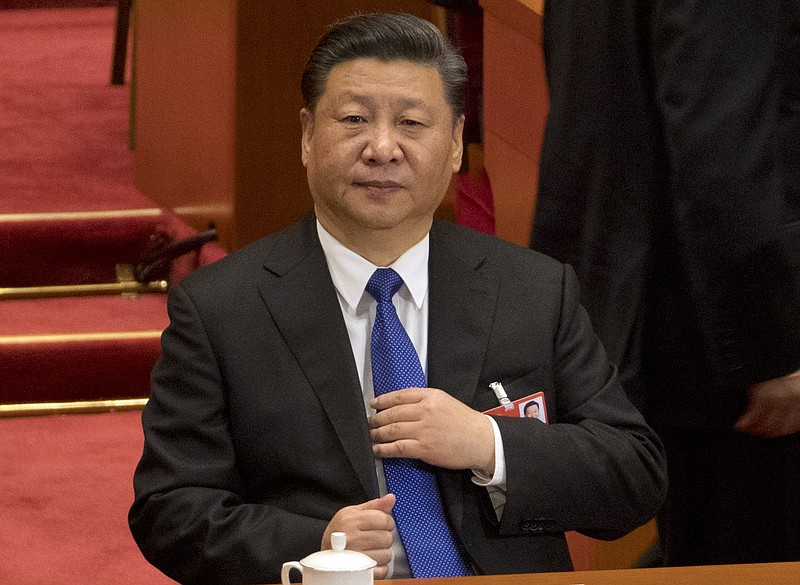WASHINGTON - By the time someone gets to be chief executive of a successful firm, they have generally been trained out of saying anything surprising in public. So I was positively astonished last week when I saw Patrick Collison, the CEO of payments firm Stripe, tweet that "As a US business (and tech) community I think we should be significantly clearer about our horror at, and opposition to, the atrocities being committed by the Chinese government against its own people."
On first read, that sentiment might seem banal. Of course we should clearly oppose China's intensifying political repression. But it is easier to list American business leaders who have cravenly excused the inexcusable than to name those such as Collison, who have been brave enough to state the obvious.
China has just passed a national security law for Hong Kong that has essentially ended any hope of liberal democracy there. The Associated Press reports the Chinese government has added forced abortion and mandatory birth control to the mass surveillance, concentration camps and family separations it has already inflicted on its Uighur community. This is inching close to attempted genocide, and it is what inspired Collison's tweet.
There's a legitimate argument that businesses should be loath to take political stands. But that defense is hard to maintain as my inbox overflows with messages from companies that want to be sure I know about their latest initiatives to fight systemic racism and police brutality. These are worthy causes, but embracing politics looks more convenient than moral if your principles vanish at the first sign that they might cost you something. And that's particularly true since the U.S. business community is probably the group with the most power to actually change China's behavior.
Ali Wyne of the Atlantic Council recently told me corporate pressure would likely be a "more potent source of medium- to long-term pressure on China to change its human rights behavior than political admonishments from the U.S. government." Condemning U.S. racism, however, is costless, while standing up to China risks corporate investments in cheap Chinese manufacturing, or companies' access to China's 1.4 billion consumers. So it takes a leader like Collison to say what has to be said.
It is not an accident, Collison told me, Stripe has limited investment in China. It was a deliberate choice, because of both the moral and economic costs of doing business within an unfree state. But most CEOs decided the benefits - the vast labor pool and vaster consumer market - outweighed those costs.
And China is cracking down to ensure we don't export our democratic values, so we risk importing their despotic ones. Hollywood trims its major releases to meet the demands of Chinese government censors; airlines change their maps to erase Taiwan; U.S. business leaders, even its athletic stars, suddenly become tongue-tied about the value of freedom.
"It must be possible," Collison tells me, "to acknowledge the basic facts - for example, that concentration camps and forced sterilization programs are reprehensible evils. If it becomes de facto unacceptable to do so, as part of some kind of self-perpetuating silence, it really seems to me that that's a positive feedback loop that we should hurry to break."
That's not something that one leader can do alone; it's more likely to take all of them. But if we can make a difference, we should find out.
Despite Collison's example, most CEOs probably won't take that risk on their own; they will be too afraid of being undercut by less scrupulous competitors. So it falls to the American public to take the same stand for liberty, equality and justice abroad that we recently have at home. We must force U.S. businesses to state, loudly and without equivocation, that all people have certain inalienable rights and that defending those rights is worth our lives, our sacred honor and, yes, even our fortunes.
Washington Post Writers Group
